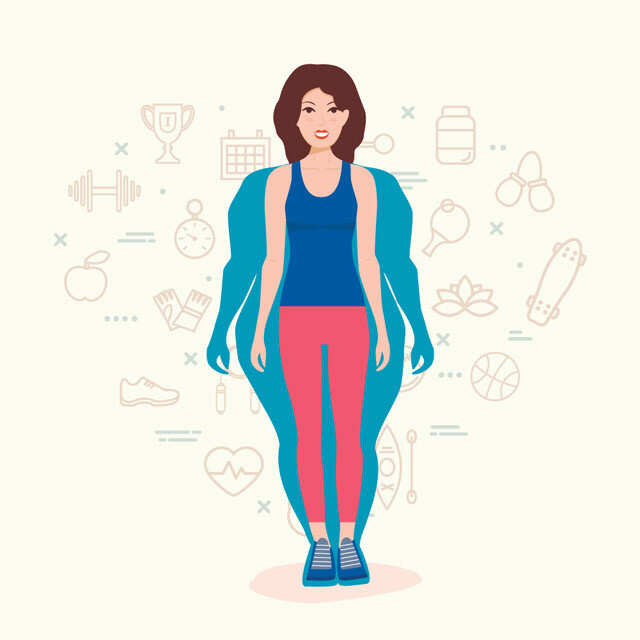
You’ve been on Instagram for some time now, and I guess it’s safe to say that you have come across a transformation photo. Those two side-by-side photos of a person, the before in which the body looks a little soft, the body language says the person is lazy and unmotivated, and in the other photo - boom!- a new person with biceps, abs and almost no fat appear. They have transformed. There’s something about these “transformation” photos that bothers me.
I understand the reason for wanting to share this comparison photo. Maybe you just started working out for the first time in your life, or you just started eating healthy, and you want to show off the results that your hard work has given you. Maybe you’re celebrating how far you’ve come. Maybe you genuinely feel better now. Whatever be the reason, it’s all fine. I understand that it can be extremely satisfying to see these changes.
Image: Instagram
What bothers me is the idea that these photos show that comparing yourself is okay; that the before version wasn’t good enough. What you looked like before defines your worth. Why must the image of a person’s body be the vehicle to share inspiring messages?
Transformation photos make it seem like you get confidence only after you achieve a certain aesthetic. THAT is what I have a problem with.
Unfortunately, that’s the message that these posts point out, especially on social media.
Influencers who post things like ‘you are beautiful no matter what you look like’ will go ahead and post a before and after photo implying that they weren’t good enough before. We claim to be promoting confidence but are we encouraging the real confidence that comes with accepting your body as it is, and enjoying food and exercise because we want to feel good about our bodies and not fit into a size that society says is acceptable?

Even trainers do this- they post transformation pictures to send out a message that ‘hey, it’s the transformation that will make you feel confident. You have to be a part of this revolution or feel like a lesser version of yourself.’
I personally don’t connect to these transformation posts anymore because even if they’re shared with the right intention, they emphasise physical comparison. These photos placed too much stress on appearance. There are a ton of studies that prove that self-objectification can lead to body dissatisfaction. The inspirational captions that you put under these photos don’t combat the negative message that the photos can send. A transformation photo can be shared with the right intention, but unfortunately, the message that it sends out is wrong.
The point is, transformation photos invite comparison to yourself, which I feel is unnecessary and cruel. I have personally posted these kinds of photos, and it took me some time to understand what I was trying to show. I realised my journey could not be summarised by a before and after picture, and a lot of conversations made me realise that seeing transformation photos made people overly critical of themselves.
Image: Instagram
Body positivity means you are celebrating where you are now. It does not mean you need to transform drastically to be happy. Yes, I agree getting fit makes you feel better about yourself, but there’s no reason to push the idea that you need to change to feel that way.
Instagram is a visual platform, but there are other ways that you can share images that work for you. Unfortunately, not all of us can give up social media, especially in this modern era.
What we can do is control who we follow, and request influencers to be mindful of the kind of content that they share.
Body Mass Index (BMI) Calculator
Next Story